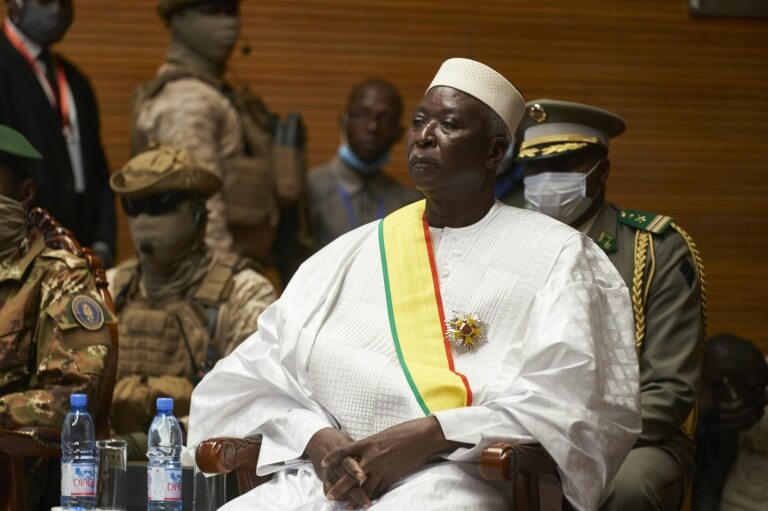
Mali gets new interim president
Mali’s interim president, Bah Ndaw, was sworn into office on Friday after last month’s putsch, vowing to hand over power within 18 months, honour international accords and pursue the fight against jihadist insurgents.
But his promises failed to shift post-coup sanctions by Mali’s neighbours, which warned their clamp would remain in place until a civilian prime minister is named.
Ndaw, a 70-year-old retired colonel, was named interim president by a committee appointed by a military junta that toppled the elected head of state, Ibrahim Boubacar Keita, on August 18.
Junta leader Colonel Assimi Goita, 37, was also sworn in as vice president of the interim government on Friday.
The ceremony took place in a Bamako conference centre filled with facemask-wearing military officials, senior judges and foreign envoys.
Ndaw promised in a speech to strive for “a stable, calm and successful transition, in the agreed conditions and timeframe.”
According to a roadmap to civilian rule — an unpublished “transition charter” endorsed by the junta — Ndaw will rule for a maximum of 18 months before staging elections.
“The charter is my guidebook,” he declared.
“Mali has given me everything. I am happy to be its submissive slave, willing to do everything for it to return to full constitutional legality, with elected authorities, legitimate representatives,” Ndaw said.
“The transition period which begins will not dispute any international undertaking by Mali, nor the agreements signed by the government,” he said.
Ndaw, who briefly served as defence minister, also promised to continue a “merciless war” against “terrorist forces and organised crime” and called for a moment of silence to honour fallen troops — Malians, French and UN.
Mali, supported by France and UN peacekeepers, is struggling with an eight-year-old Islamist insurgency which has claimed thousands of military and civilian lives.
Men dressed in military fatigues and balaclavas stood behind judges as they performed the inauguration ceremony, which was marked by moments of confusion.
Supreme Court Chief Prosecutor Boya Dembele, who was dressed in fur-lined red robes, said the challenges facing both Ndaw and Goita were “enormous”.
“It will truly require a reformulation of the state,” he said, of transforming governance in the poor nation of some 19 million people.
Mali’s neighbours have watched the dramatic political upheaval in Bamako with worry, anxious to avoid the fragile country slipping into chaos.
Swathes of the vast country already lie outside of government control, due to a lethal jihadist insurgency that first emerged in 2012 and has also inflamed ethnic tensions.
Thousands of soldiers and civilians have died in the conflict to date, and hundreds of thousands have had to flee their homes.
Tensions generated by the conflict — as well as a dire economy, and corruption — contributed to mass protests against Keita, culminating in last month’s putsch.
The 15-nation ECOWAS bloc took a hard line, slapping sanctions on Mali and threatening a “total embargo” should the junta instal military leaders of the interim government.
It stood by that approach on Friday. The president of the ECOWAS commission, Jean-Claude Kassi Brou, declared sanctions “will be lifted when a civilian prime minister is named.”
Brou underlined the importance of publishing the junta-backed charter and warned that ECOWAS could not accept that Goita, as vice president, could potentially replace Ndaw.
ECOWAS’s “prime concern is maintaining constitutional democracy in the region,” he said.
Current restrictions ban commercial trade and financial flows, but not basic necessities, drugs, equipment to fight coronavirus, fuel or electricity.
On Thursday, former Nigerian president and ECOWAS mediator Goodluck Jonathan, had commented favourably on the upcoming swearing-in.
“We are optimistic that this event will signal the beginning of the return to normalcy in Mali,” he said on Twitter.

